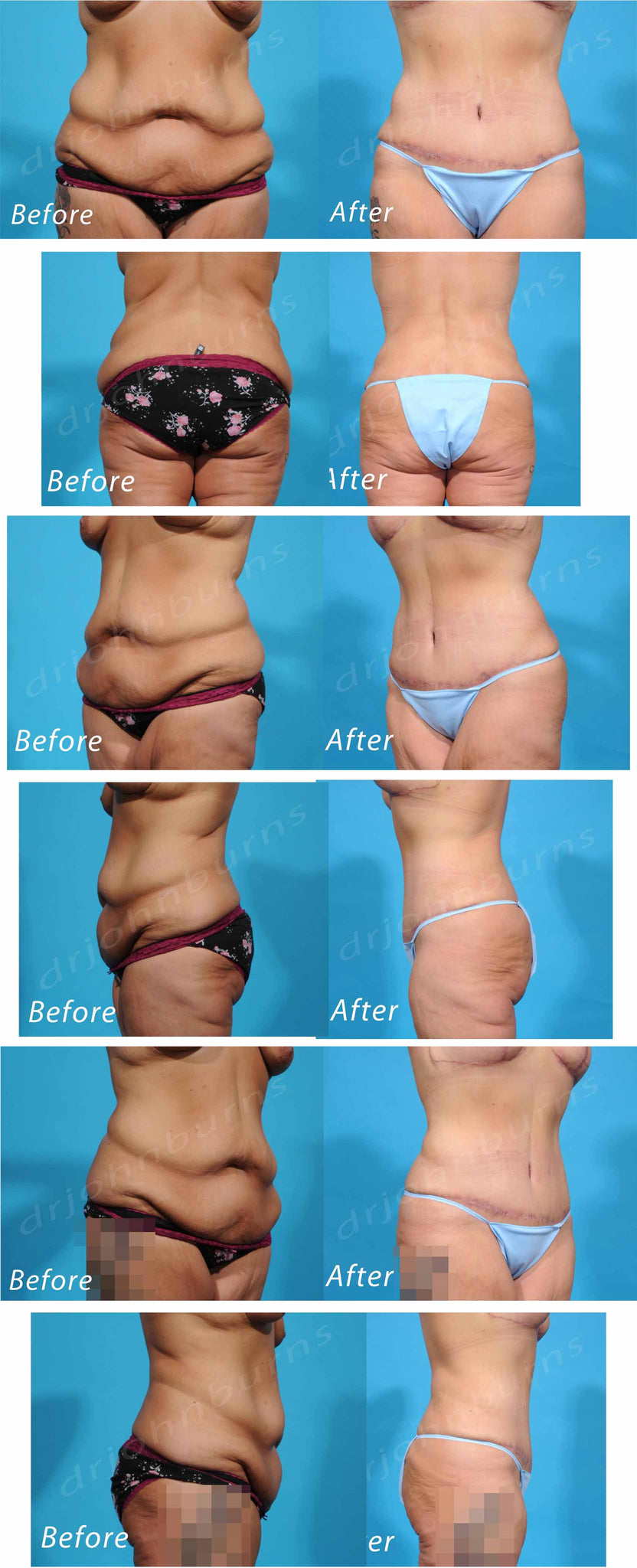Massive Weight Loss Body Contouring

In the past decade, obesity has reached epidemic proportions. Fortunately, recent medical advances such as gastric bypass, gastric sleeve, or lap band have allowed patients to quickly and safely lose tremendous amounts of weight. However, weight gain results in changes in the skin which cannot be reversed with weight loss. These changes are evident in the face, arms, abdomen, breasts, hips, buttocks, and thighs.
There are numerous procedures designed to improve the body contour after weight loss such as face and neck lift (rhytidectomy), tummy tuck (abdominoplasty), breast lift (mastopexy), arm lift (brachioplasty), thigh lift (thigh plasty), and liposuction. It is critical for the surgeon and patient to prioritize these procedures and proceed with a safe and precise plan.
Safety is the most important issue and should never be compromised. A general rule of thumb is to limit the time for each surgery to six hours, limit blood loss to avoid a transfusion, and prevent blood clots from forming in the legs which can be a life- threatening condition (deep venous thrombosis). Generally, it is necessary to stage these procedures, giving the patient time to fully recover before undertaking another procedure.
Patient Focus 1
Procedures: Extended tummy tuck/abdominoplasty with Breast Augmentation and Extended Breast Lift/Mastopexy, bilateral extended arm lift/brachioplasty



Patient Focus 2
Procedures: Circumferential Abdominoplasty/Lower Body LIft with Breast Augmentation and Extended Breast Lift/Mastopexy


Expectations
In/Outpatient: Inpatient or outpatient
Side Effects: Temporary swelling, bruising, and some pain
Risks: Pain, bleeding, infection, incomplete improvement, contour irregularity, healing problems, blood clots
Recovery: Back to work: 1 - 2 weeks. More strenuous activity: 2 - 3 weeks
Final Appearance: 1-2 months for swelling to resolve
Duration of Results: Permanent if stable weight maintained
Schedule A Consultation
View all patient photos
Body Contouring Plastic Surgery and Your BMI
Peer reviewed plastic surgery research indicates that the complication rates from breast and body contouring plastic surgery are much lower if your Body Mass Index is in the normal range. For obese or morbidly patients, complication rates such as deep venous thrombosis, wound healing problems, and infection are much higher. We encourage all of our patient to know their BMI and if at all possible achieve a normal BMI or at least < 30 before embarking on elective cosmetic surgery.
Calculate Your BMI

Weight Management Resource Center from the NIH
 |
 |
 |
| NIH Aim for a Healthy Weight Resource Center | Assessing Your Weight and Health Risk | Eat Right Resource Center |
 |
 |
 |
| Be Physically Active | Healthy Weight Tools | Key Recommendations |
Free Download: Aim for a Healthy Weight Booklet


